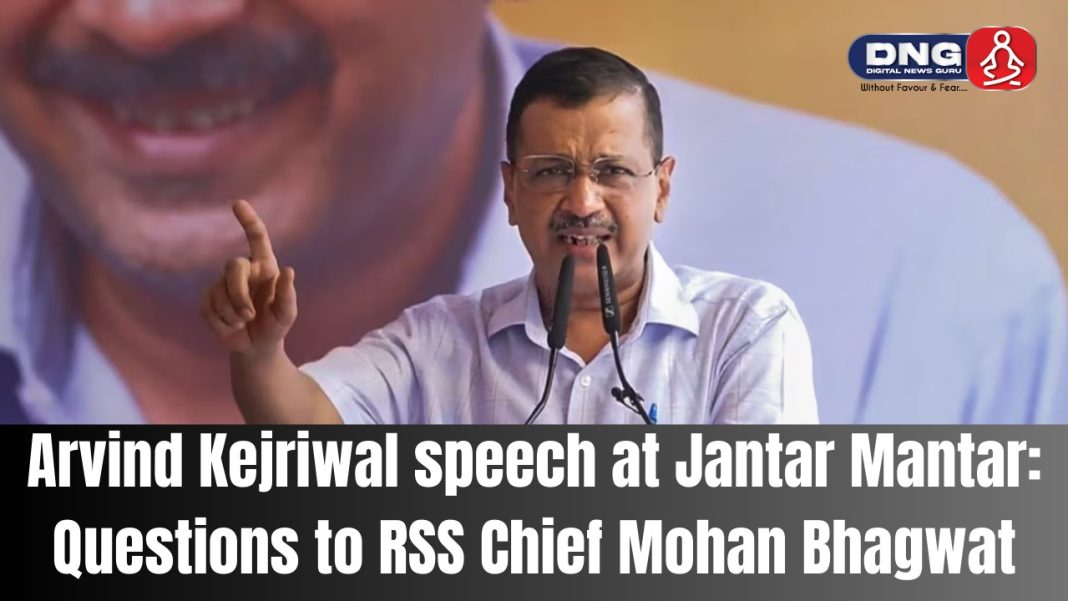DIGITAL NEWS GURU DELHI DESK:
Arvind Kejriwal speech at Jantar Mantar: Questions to RSS Chief Mohan Bhagwat
On September 22, 2024, Aam Aadmi Party (AAP) chief Arvind Kejriwal delivered a charged speech at Jantar Mantar, New Delhi, as part of his “Janta Ki Adalat” event.
The speech was marked by sharp criticism of Prime Minister Narendra Modi and the Bharatiya Janata Party (BJP), focusing on what Kejriwal called a systematic conspiracy to undermine his party and its leadership. This address was particularly significant, coming after Kejriwal’s resignation as Delhi’s Chief Minister amid a cloud of corruption allegations and political pressure.
Accusations of a Political Conspiracy
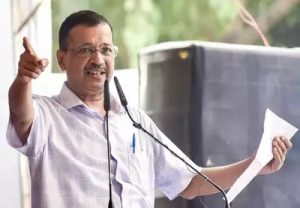
Kejriwal did not hold back in accusing the Modi-led central government of orchestrating a plan to destroy AAP’s image by sending its top leaders to jail. He directly blamed the Prime Minister for initiating this campaign as a strategy to weaken AAP, which has positioned itself as an anti-corruption force since its inception.
Kejriwal asserted that over the last decade, his government had functioned with integrity, providing essential services such as free electricity, water, healthcare, and education to Delhi’s residents. However, he alleged that the BJP, threatened by AAP’s success, resorted to using the central investigative agencies, like the Enforcement Directorate (ED) and the Central Bureau of Investigation (CBI), to frame him and other AAP leaders like Manish Sisodia.
According to Kejriwal, the BJP’s primary aim was to dismantle the party’s reputation for honesty, which has been one of its strongest political assets. He accused Modi of engineering false corruption charges to tarnish AAP’s clean image and imprison its key figures. The former Chief Minister further added that Modi’s ultimate goal was to suppress the rising influence of AAP in Indian politics by systematically breaking down its leadership.
Questions to RSS Chief Mohan Bhagwat
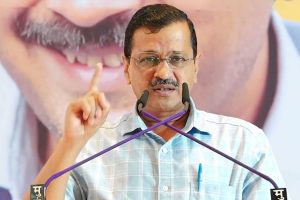
In a bold move, Kejriwal directed five pointed questions to Rashtriya Swayamsevak Sangh (RSS) chief Mohan Bhagwat, questioning the RSS’s role in endorsing or opposing BJP’s actions. Kejriwal asked whether Bhagwat approved of the Modi government’s tactics of using central agencies to dismantle opposition parties and whether this was aligned with the RSS’s nationalist values. He further questioned why the BJP, which often accuses opposition leaders of corruption, later inducts those same leaders into its ranks.
Kejriwal’s questions went beyond immediate political issues, as he also touched on the BJP’s ideological foundations. He asked if the rule that senior BJP leaders should retire at the age of 75, which was enforced on veterans like L.K. Advani, would also apply to Modi. Through these questions, Kejriwal sought to challenge the BJP’s moral standing while highlighting what he perceives as hypocrisy in its leadership.
Personal Reflection on Corruption Allegations
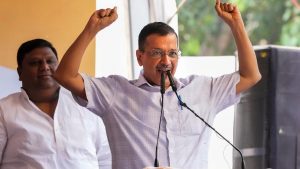
One of the more personal aspects of Kejriwal’s speech was his reaction to the corruption allegations that led to his resignation. He expressed deep hurt and frustration, asserting that he entered politics not to indulge in corruption but to serve the people of India. Kejriwal pointed out that unlike other politicians who remain unscathed by accusations, he felt personally affected by the charges, describing himself as a “common man” who values his integrity.
Kejriwal defended his record, stating that in his ten years in power, he had not amassed wealth but had only earned the love and respect of the public. He revealed that many citizens had offered him their homes after his resignation and announced that he would soon vacate the Chief Minister’s bungalow, likely after the Shradh period during Navratri.
Delhi Elections as a “Trial by Fire”
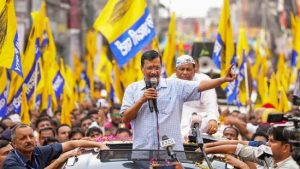
Looking ahead to the upcoming Delhi Assembly elections, Kejriwal described the contest as an “agni pariksha” (trial by fire) for him and his party. He urged the public not to vote for him if they believed the corruption allegations. This open challenge was a clear attempt to restore public faith in AAP’s core values of honesty and transparency, which have been central to its identity since its formation during the anti-corruption movement led by Anna Hazare.
Kejriwal’s speech at Jantar Mantar was not just a critique of the BJP and Modi but also a plea to the public to evaluate his leadership based on AAP’s track record. He reminded the audience that his government had successfully implemented policies that directly benefited the common man, including free education, healthcare, and essential services. In a direct contrast, he pointed out that even though the BJP controls many states across India, such public welfare measures are not in place elsewhere.
Conclusion
Arvind Kejriwal’s speech at Jantar Mantar was a highly charged political statement, blending personal reflection with sharp political critique. His accusations of a conspiracy orchestrated by the Modi government, coupled with his challenge to the RSS and his defense of his own integrity, underscored the high stakes of the upcoming Delhi elections. Kejriwal’s message was clear: his resignation and the corruption allegations against him were not an admission of guilt but rather an effort to uphold his personal and political values. With the Delhi elections on the horizon, Kejriwal framed the contest as a referendum on his honesty and AAP’s clean governance.
YOU MAY ALSO READ: India’s Supreme Court YouTube Channel Hacked: Cryptocurrency Scam Raises Cybersecurity Concerns



